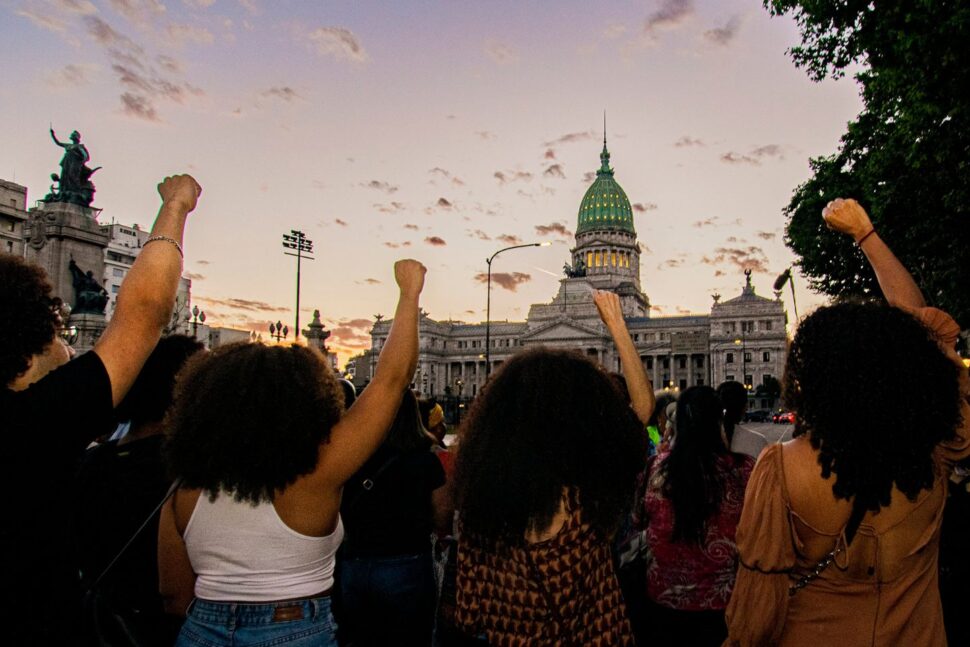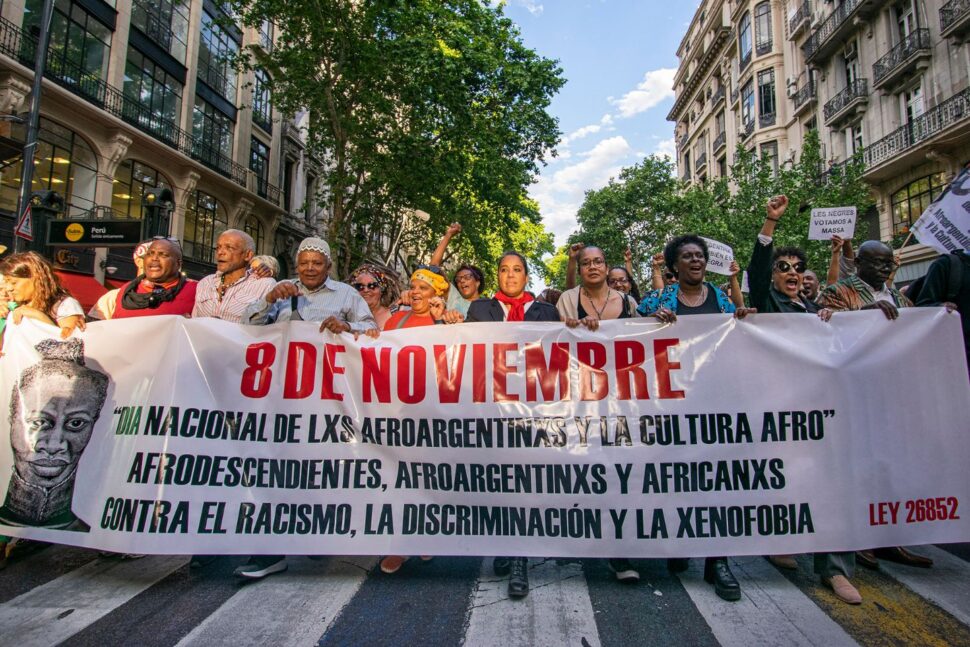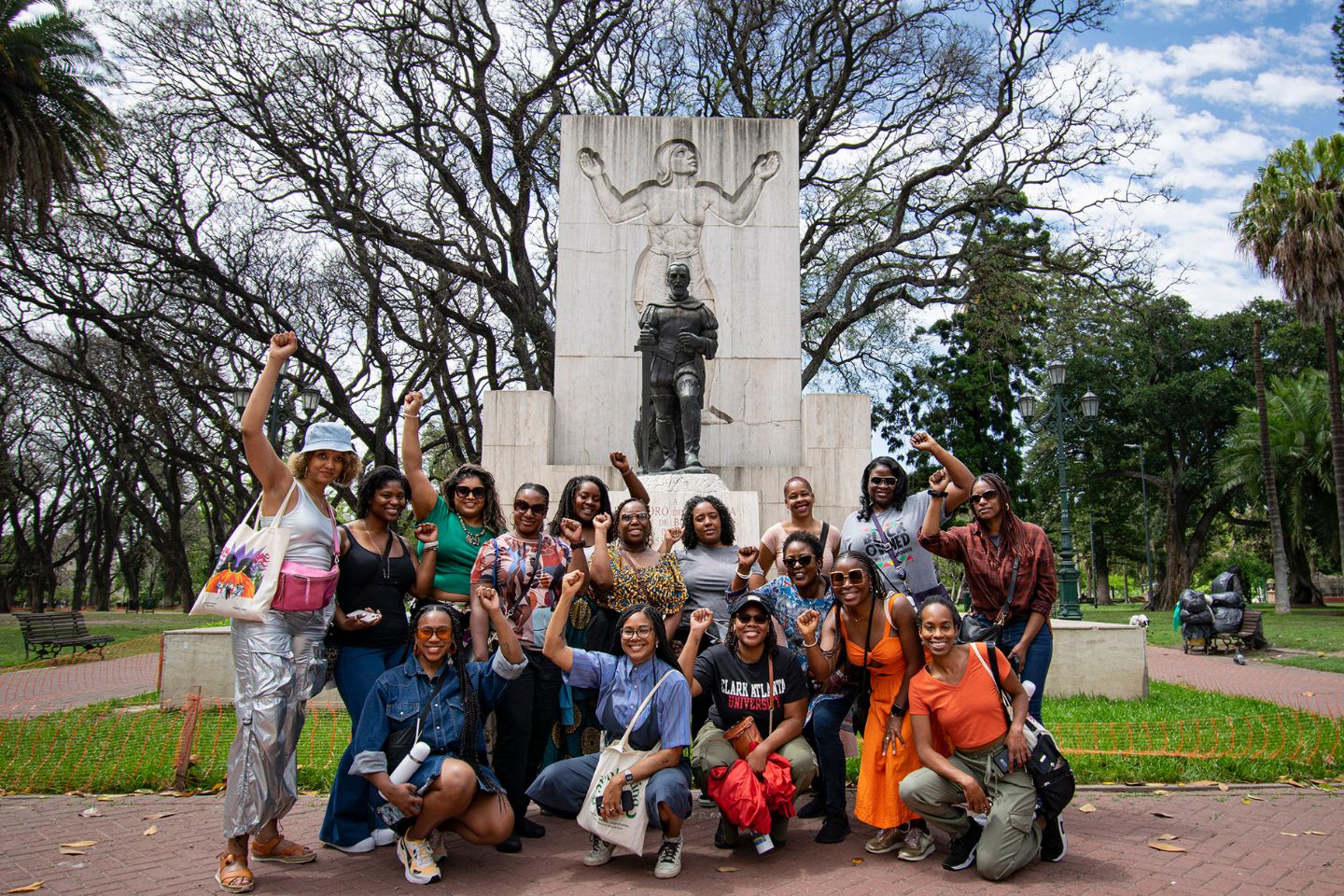The complex and powerful history of Afro-Argentinians is getting its long-overdue visibility through a new tour experience. Lunfarda Travel, a woman-owned tour company in Buenos Aires, is leveraging tourism as a way of activism.
These tours allow local communities to tap into the lucrative, yet historically gatekept travel industry. Although it may be difficult to find Black guides or travel agents, Lunfarda is working to improve that.
“Creating the tour is about bringing economic empowerment to the Black community through ownership of our narrative,” Lunfarda’s Travel Director Julia Cohen Ribeiro shared with Travel Noire. “By running this tour, we’re pushing money into often-overlooked businesses. [We are also] sponsoring local artists and creating a fund to achieve dreams like the first Black History Museum in the city. Tourism has become a way of activism. [We are] consciously redirecting travelers’ dollars into places where they can have a profound impact.”
Travel Noire spoke with Ribeiro about how the company helps to transform the understanding of what Argentinity means.

Travel Noire: Can you shed light on the whitewashing of Argentina? Why is this time in Argentina’s history particularly special for Afro-Argentinians?
Julia Cohen Ribeiro: As with any country on the American continent, Argentina was a colony, [which] means it profited off the slave trade. Although an estimated 200,000 African people entered the territory through the port of Buenos Aires, the [consensus] regarding our history is that ‘There are no Black people here,’ ‘All Black people died during the yellow fever epidemic,’ or ‘There was no slavery in Argentina.’ In present days, [the narrative is] ‘There’s no racism because there are no Black people.’ This couldn’t be further from the truth.
Our Black population, and in a very similar way our indigenous population, was erased from education and history books. [They were] uncounted in the census for centuries, and their cultural contributions were overlooked. Whitewashing history has happened throughout the Americas. [However,] Argentina has it easier because the population has been lightened, due to massive European immigration from the 1850s to 1940s.
Public policies benefited European immigrants who wanted to come to this new republic. Six million Europeans arrived, [along with] the million and a half Spanish, Indigenous and Black [people] already living in the territory. As a result, many Afro-descendants are white or have light skin. Most of them don’t know their ancestry because of the denial in our society and even inside families.
The vision of a white European country is still very much ingrained in our collective consciousness. [However,] the descendants of Africans who were brought to these lands by force are resilient and guarded their memory and traditions with a lot of effort.
TN: What can travelers expect to see during the Afro-Argentine culture tour?
JR: The 3-hour walk [visits] San Telmo, one of the oldest neighborhoods of Buenos Aires that still has houses from the 1700s. San Telmo has a lot of Black culture. Many groups of Candombe (an Afro-Argentine/Afro-Uruguayan rhythm) play on the streets and rehearse in the squares every weekend.
We visit the first house rented by a Black man in the city [and] a church with a memorial for the victims of the yellow fever epidemic. [The tour also includes] an old tenement turned into a gallery, the Maria Remedios del Valle Mural, a restaurant owned by people from the Cape Verdean Community and a park with many layers of history. [The site] now houses the National Historical Museum, where you can see artifacts from our Black History that we convinced the museum to display.
The expanded experience of this tour is the first-ever Afrocentric trip, designed by Lunfarda Travel. It includes lunch at the Cape Verdean Community Center, the screening of the documentary ‘Maria Presente’ with the production team and activists, a Candombe siting/workshop, a collage workshop with Afro-Argentine artist Kilava and a performance workshop with Afro Feminist Arts Collective Kukily. [We also visit] other formerly whitewashed neighborhoods of Buenos Aires with an Afrocentric view.

TN: Can you share a few aspects of Afro-Argentine culture and history that might surprise visitors?
JR: Some of the most distinctive elements of Argentine culture have roots in the history of Black people. We have a Black Mother of the Nation [and] half of the army of our Independence wars were Indigenous and Black.
‘Tango’ is actually an African word that means ‘place of dancing.’ Primitive tango was an Afro-beat. [It] also originated the Candombe, the Milonga (two other folklore rhythms of Argentina) and the Murga that is played in our Carnivals.
The Asado, our barbecue, is [also] such a trademark of our culture. Its origins [derive from] enslaved people who grabbed parts of the cow that were thrown out.
TN: Outside of the tour itself, what impact does this tour have on Black people and businesses in Buenos Aires?
JR: The history has to be told in first person by the people who experience it. That’s why all our guides are Afro-descendants. We [also] collaborate with Black businesses, artists and entrepreneurs to bring a plural vision to how we showcase Black history.
We stop by El Patio de Cabo Verde. This café and restaurant is owned by a member of the Cape Verdean community. Kilava, an Afro-Argentine visual artist, has been a long-time collaborator of Lunfarda. [They have] worked on many projects [with us], such as the Mural for Maria Remedios del Valle and running a collage workshop centered around the shared experiences of the Black diaspora. Kukily Collective also [does] a performance workshop called ‘Negra, Negra, Negra Soy,’ where memory and identity are shared in a safe community space.
Lunfarda’s office also has a shop where artists of the collective showcase their work. We want to expand this project so travelers can have more access to Black art. The profits of the tour also are destined to fund free tours for Black kids and their families. [We also aim to] support causes like the first Afro-LGBT+ float at the Buenos Aires Pride March.
This article has been edited and condensed for clarity.





